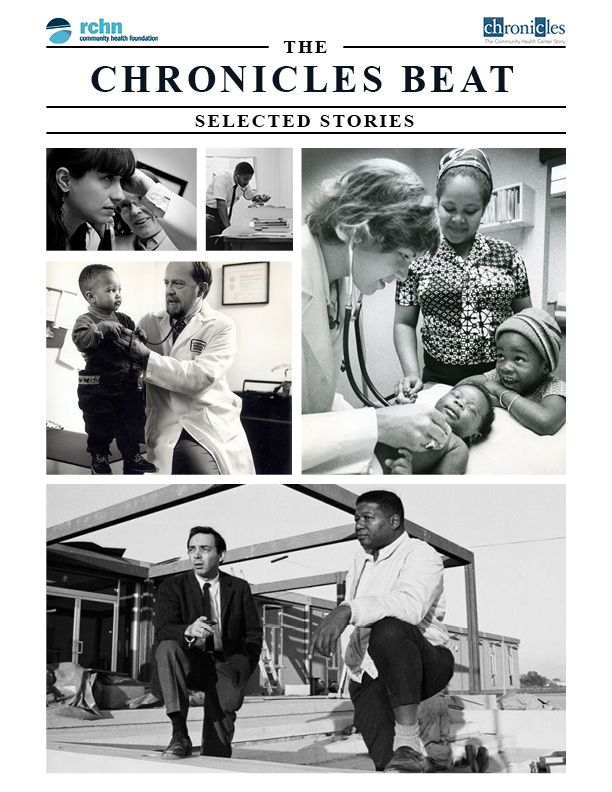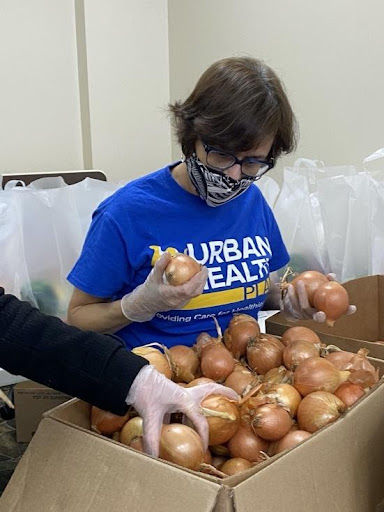Geiger Gibson Program in Community Health Policy Fall Webinar Series
The Geiger Gibson Program in Community Health Policy at the George Washington University’s Milken Institute of Public Health is pleased to offer four cutting-edge health policy webinars for community health centers this fall. Each session will include a robust discussion by health policy experts and health center and primary care association leaders on some of the most pressing health policy issues today.
The series will be moderated by Sara Rosenbaum, the Harold and Jane Hirsh Professor of Health Law and Policy of the George Washington University’s Department of Health Policy at the Milken Institute School of Public Health.
COST: A single fee of just $199 for all four webinars covers all attendees in your entire organization.
CME/CNE CREDITS AVAILABLE: CME or CNE credits are available to program participants for an additional fee of $25 per person for the full series.
TO ATTEND: To purchase this webinar series for your organization please visit this registration page. Please use the Continuing Education Credit Add-On at the registration link to secure CME/CNE credits for eligible participants.
SESSION INFORMATION
The End of the Public Health Emergency: The Start of New Challenges?
September 21, 2021 (12:00 pm to 1:00 pm Eastern time)
- Jennifer Tolbert, Kaiser Family Foundation
- Rachel Gonzales-Hanson, National Association of Community Health Centers
- Bruce Gray, Northwest Regional Primary Care Association
- Michael Taylor, Cornell Scott – Hill Health Center (CT)
When the federal government declares the end of the COVID-19 public health emergency, a host of insurance and health issues will arise. Continuous Medicaid eligibility allowed during the crisis will end, likely resulting in thousands of people losing health insurance coverage. Many state Medicaid agencies also have made changes to improve coverage or help providers deal with emergencies during the crisis, and these changes may be affected as well. Join us to learn how an end to the emergency declaration may affect health centers and their patients and communities.
Home and Community Based Services: Current Policy and Community Health Centers’ Role
October 5, 2021 (12:00 pm to 1:00 pm Eastern time)
- Katherine Hayes, Bipartisan Policy Center
- Stuart Portman, Senate Finance Committee Minority Staff
- Manny Lopes, East Boston Neighborhood Health Center (MA)
How best to serve an aging health center population as well as patients and community residents with disabilities is an ongoing challenge. In recent years, many health centers have expanded their involvement in home and community-based care to help patients remain in their homes and actively engaged, and efforts range from in-home care for the elderly to advanced day services for patients with mental illness and substance use disorders. Congress also is placing an increasing focus on strengthening state Medicaid tools for expanding the provision of home and community-based care. Join us on this webinar to learn about what is currently happening in Home and Community Based Services (HCBS) and long-term services and supports from a policy perspective.
The American Rescue Plan and the American Families Plan: What Comes Next for Community Health Centers and Medically Underserved People?
October 26, 2021 (12:00 pm to 1:00 pm Eastern time)
- Jennifer Tolbert, Kaiser Family Foundation
- Stuart Portman, Senate Finance Committee, Minority Staff
- Jana Eubank, Texas Association of Community Health Centers
- Joe Pierle, Missouri Primary Care Association
The Biden Administration has prioritized additional supports for families through the American Rescue Plan (ARP), enacted in March 2021, and the American Families Plan. ARP creates important new options for states. The American Families Plan (potentially coupled with infrastructure legislation) would reduce premiums and cost sharing for people who buy marketplace policies, lower the Medicare eligibility age, and close the Medicaid coverage gap in non-expansion states. Join us to learn about the implications of these enormous health policy reforms for health centers, patients, and communities.
Community Health Centers and Current Issues in Reproductive Health
November 9, 2021 (12:00 pm to 1:00 pm Eastern time)
- Dr. Warria Esmond, Settlement Health (NY)
- Gretchen Borchelt, National Women’s Law Center
The Supreme Court will hear Dobbs v Jackson Women’s Health Organization, which could overturn Roe v. Wade, the Court’s 1973 landmark ruling legalizing abortion in the U.S. In addition, the Biden administration is expected to issue final Title X regulations reversing the Trump administration’s “Gag Rule,” which caused hundreds of providers (including many community health centers) to leave the federal family planning program. Join us on this webinar for a deep dive into U.S. health policy and reproductive health.
To learn more about the Geiger Gibson Program in Community Health Policy, please visit the program site.
_______________________________________________________________________________________________________________________
#COVID19CHC Stories
Since the early days of the pandemic, our colleagues at the Association of Asian Pacific Community Health Organizations (AAPCHO) have shared powerful stories showcasing the critical work of community health centers, and demonstrating why stable, secure funding and resources are necessary to ensure that care for vulnerable people and communities is strengthened and maintained. Their latest story, Community Health Centers Providing Leadership on Infection Protection and Control, tackles best practices in infection control and the need for robust education for both patients and staff, along with supportive services, as the COVID-19 virus continues to course through vulnerable communities. It features Heather Kawpunna, health program manager, and Daniel Pyen, health program coordinator, colleagues from the Center for Pan Asian Community Services (CPACS) in Atlanta GA. They discuss infection protection and control and some of the barriers that Asian American and Native Hawaiian/Pacific Islander communities may face when seeking care. Pyen clearly sums up the health center mission and commitment with this comment, “Despite this pandemic, we never stop serving the community. We still need to continue to serve the communities. We’ll never stop. This is how we continue to bring it forward, to bring that strength, that togetherness to remind them that during these times of tribulations, we’re here to help.” You can find this new story here: Community Health Centers Providing Leadership on Infection Protection and Control along with additional #COVID19CHC Stories.
Thanks to AAPCHO for this important educational and policy resource.
_______________________________________________________________________________________________________________________
Selections from the CHroniCles Beat– New Publication for National Health Center Week
Just in time for National Health Center Week, we are excited to release “Selections from the CHroniCles Beat,” a collection of stories from our signature CHroniCles website.
The core of the CHroniCles site is an extensive collection of contributed narratives, photos, documents and other materials documenting the founding and exceptional decades-long work of community health centers across America. Complementing this archive is the site’s CHroniCles Beat feature, which spotlights current health center programs, challenges, and triumphs. The fight for health care access and justice, fought community by community, is reflected in these stories showcasing the extraordinary role of our health centers on the front lines of the opioid epidemic, the Zika crisis in Puerto Rico, care for our veterans, and more. While the stories are intentionally local and unique, the themes are universal, highlighting the depth of the health center commitment to elevating health care and the health of our communities, and the breadth of their vision and leadership.
We are inspired by and grateful to the health centers and primary care associations that have generously shared these stories with us, and to our community health center colleagues everywhere whose work on the ground has been central to our mission. A dozen stories, written over the course of the past decade, are featured in this new collection. We hope you will be similarly inspired by this selection of narratives from health center organizations working to bring health care quality and health equity to every community.
The complete CHroniCles Beat feature, along with our videos and other features, can be found here on the CHroniCles site.

Photos in upper row center and bottom row by Daniel Bernstein
_______________________________________________________________________________________________________________________
And one more CHroniCles Beat story: In Pandemic Times, A Health Center Adapts to Fight Hunger and Improve Health
The COVID-19 pandemic has had an unprecedented impact on communities globally and nationally. Especially in low-income and high-risk communities, widespread illness was compounded by increases in unemployment and food insecurity.
Fighting hunger is a public health issue. While many different organizations provide WIC services, Community Health Centers often offer WIC programs as part of their community-focused mission, especially in areas where nutritional risk is great. One such organization is Urban Health Plan (UHP), a health center serving many New York City neighborhoods. For this CHroniCles Beat blog, we spoke with the health center’s WIC program staff and Nutrition Director to learn more about UHP’s WIC program and other food security initiatives and discuss how the health center has responded and adapted its programs to the changes caused by the COVID-19 pandemic.
Read the blog, “In Pandemic Times, A Health Center Adapts to Fight Hunger and Improve Health.”

Photo courtesy of Urban Health Plan (Bronx, NY)

Photo courtesy of Urban Health Plan (Bronx, NY)



